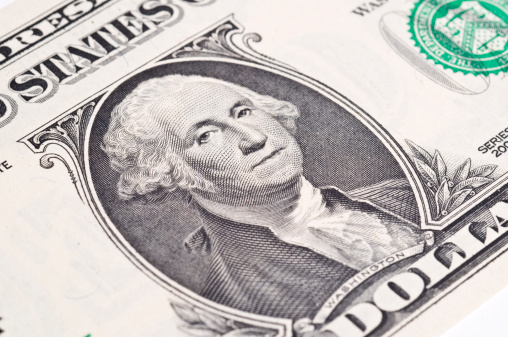The dividend hike brigade keeps on marching. Microsoft Corp. (NASDAQ: MSFT) jumped in with a dividend hike a tad sooner than we were expecting, given that it is searching for a new CEO. We expect more dividend hikes coming in the next few weeks and before the end of 2013.
24/7 Wall St. has analyzed, criticized and predicted many dividend flows for years now, and we see several more dividend hikes likely to be announced before the end of the year. Not all these payments will have to be paid out in this calendar year, but the announcements should come before year-end. Some raised dividend announcements may come as soon as the next few weeks.
AT&T Inc. (NYSE: T) last hiked its dividend with an announcement last November. AT&T has raised dividends for so long that it is one of the dividend aristocrats. It is also the king of dividends among Dow Jones Industrial Average (DJIA) stocks, having the highest yield in that index of a whopping 5.2%. AT&T also would still have to rally more than 12% before hitting a 52-week high, and we think that the bulk of its major acquisitions have been made.
AT&T pays out close to 72% of normalized per share income now, so when you add in that it has the highest DJIA yield already, we would only expect the hike to be from $0.45 up to $0.46 per share per quarter. As a reminder, AT&T outyields Verizon Communications Inc. (NYSE: T) by almost 1%. We expect this hike, but we just cannot expect too much of one when it already dominates all peers in payouts.
General Electric Co (NYSE: GE) is all but a shoe-in for a higher dividend hike. We would expect this announcement most likely in December, but Jeff Immelt is now in the midst of separating off parts of GE Capital, and this finally has started paying GE’s parent company dividends again.
We predicted this GE dividend hike earlier in the year and we stick by the amount. With earnings growth expected to be just under 10%, we are looking for the GE dividend announcement that the raise will be to $0.21 per share from $0.19 per quarter. This would be 46% or so of expected and normalized earnings per share for GE in 2014.
Goldman Sachs Group Inc. (NYSE: GS) is another fresh addition to the DJIA, and its most recent dividend hike was announced last October along with earnings. If it will be in the DJIA, we think that “Golden Slacks” may be obligated to deliver another dividend hike. Its $2.00 annualized payout currently is only about 13% of its normalized income, and it yields a paltry 1.2%. Frankly, the team here could double the dividend, but we won’t be greedy and expect too much from them. We were a bit surprised by the dividend hike last October, but if it is a new DJIA member, it seems more than possible to expect a repeat.
J.P. Morgan Chase & Co. (NYSE: JPM) already had a dividend hike in 2013, so this might still be a wild card. Maybe it would be safer for us to expect the next hike in 2014, but we do not always just play it safe in these calls. One reason we are looking for a higher dividend and maybe even a higher buyback is because it was hinted at by the CFO at an investor presentation in early September.
Because of how recent the hike was, we would keep J.P. Morgan on a “hopeful” rather than formal status — even if management hinted at such a hike recently. Now J.P. Morgan just has to see if it can get the sentiment back in its favor enough that it would even be allowed to have another hike this soon.
Nike Inc. (NYSE: NKE) was another one of the companies that was just added to the esteemed DJIA. It was a very big surprise to us, and frankly Nike is not even a company we have ever considered big news on the dividend front. After all, it currently only yields a paltry 1.2%. Its $0.84 annualized payout is only about 28% of its normalized earnings per share expected.
This needs to rise, and we would look for Nike’s dividend hike to be announced in November again. Based on past hikes, we would look for the quarterly dividend announcement to go to $0.24 per share from $0.21 now. We would welcome a higher payout, but we just do not see management paying out more than $0.25 at the top-end based on its historical dividend hikes.
Walt Disney Co. (NYSE: DIS) is still one of the few American companies that pays its dividend annually. We think this policy needs to change, but either way, we expect another dividend hike from the Mouse House. Bob Iger has ramped things up with his purchase of the Star Wars franchise, and we think this $4 billion spent will generate $30 billion in the future, based on the history here. The dividend hike of 50% in 2011 was followed by a hike of 25% in 2012, so we will look for a hike of about 20% to $0.90 per share.
This is still easily less than 30% of normalized income per share expectations, so maybe we should call for Disney to raise that payout to $1.00 or more, even if we think $0.90 is safe enough and $0.95 would be the higher end of our expectations. The problem here is that Disney investors have to buy for the future growth because its yield is a mere 1.1%, now that shares are again close to all-time highs.
When Microsoft Corp. (NASDAQ: MSFT) raised its dividend by 22%, it effectively announced that its stock will now come with a higher dividend yield of roughly 3.4%. That is impressive enough, even as a member of the prized DJIA. Now we just wonder what great new news is left for the new CEO to announce.
It’s Your Money, Your Future—Own It (sponsor)
Are you ahead, or behind on retirement? For families with more than $500,000 saved for retirement, finding a financial advisor who puts your interest first can be the difference, and today it’s easier than ever. SmartAsset’s free tool matches you with up to three fiduciary financial advisors who serve your area in minutes. Each advisor has been carefully vetted and must act in your best interests. Start your search now.
If you’ve saved and built a substantial nest egg for you and your family, don’t delay; get started right here and help your retirement dreams become a retirement reality.
Thank you for reading! Have some feedback for us?
Contact the 24/7 Wall St. editorial team.





